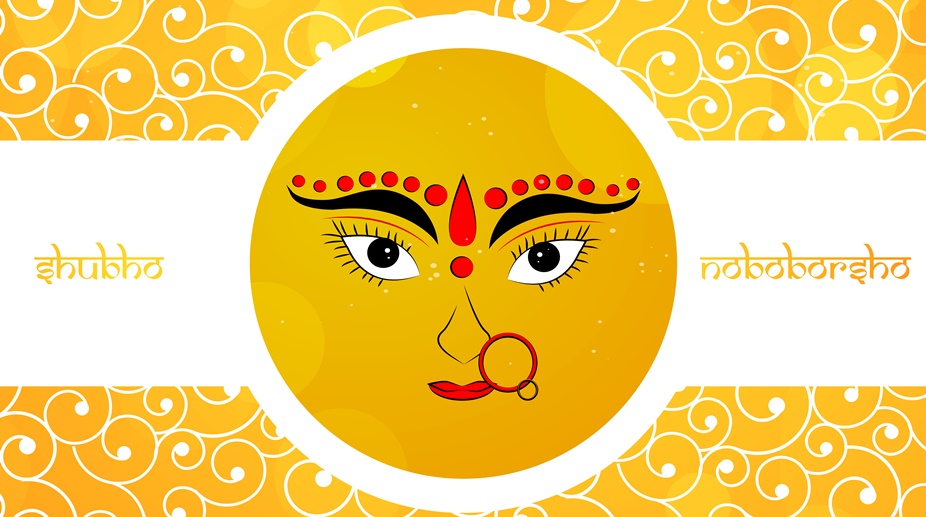A tale of two rivers
So from this Bengali New Year on, let your taste buds get ready for twists in the tale of the Ganga and Padma rivers, as offered by various chefs and food enthusiasts.
The meaning remains same whichever spelling is used. Poila and pohela (pahela) both mean first. And Poila Boishakh is the first day of the month of Boishakh, which heralds the Bengali new year.

(Photo: Getty Images)
Back home many many years ago, we would laugh when our non-Bengali friends tried to greet us in Bengali on our new year’s day. They would never get the pronunciation of Poila Boishakh right, invariably calling it “Pahela Baishakh” or .”Pohela Boishakh”.
Decades later, ‘Pahela Baishakh’, or Pohela Boishakh’, trends on Google. Even on typing ‘Poila Boishakh’, the search engine giant shows results for ‘Pohela Boishakh’. Thankfully, Google hasn’t started asking yet, “Did you mean Pohela Boishakh?”
As a Bengali, my first reaction was of amusement, and disappointment. Why ‘Pohela’? Ramdhanu (rainbow) has become rongdhanu in textbooks. Has Poila Boishakh too given way to something more inclusive, to be accepted nationally?
Advertisement
There doesn’t seem to be an official stamp on with switchover yet, though, as a few government and corporate ads in West Bengal still had the old spelling on Saturday, much to my relief.
ALSO READ | Revisit your Bangaliana
Also, many Bengalis I spoke to weren’t even aware about this.
So, who is effecting this change on the world wide web?
A section believes this is because Bangladesh celebrates the day as Pohela Boishakh. Maybe that’s the reason US President Donald Trump’s “Shubho Noboborsho” message too mentioned the new spelling.
Most of the Bangla newspapers in Bangladesh, however, still say Poila Boishakh, and so do the people there. One paper has used both spellings — the new one, ironically, for a report on the April 14 Google Doodle on the Bengali new year.
The doodle celebrates the day when colorful street festivals mark the start of a new year. While Bengalis in India are celebrating the day on April 15, Bangladesh entered into the new year on April 14.
The meaning remains same whichever spelling is used, though. Poila and pohela (pahela) both mean first. And Poila Boishakh is the first day of the month of Boishakh, which heralds the Bengali new year.
The first day of the Bangla calendar is celebrated by Bengalis across the country and abroad with much fanfare. While a trip to the temple, new clothes, a phone call to family members staying away from home, and cultural programmes are usually a must on this day, Poila Boishakh is also the day the food loving Bengalis feast on good old traditional fares.
Poila Boishakh : Ring in the Bengali new year with these traditional dishes
The date is set according to the lunisolar Bengali calendar. On the same day, usually, Kerala celebrates Vishu, Sikhs celebrate Baisakhi, and Tamil Nadu Puthandu.
For the business community in Bengal, the day is of utmost importance. They begin the new year by praying to God and seek blessings for their ledger books, also known as haal khata or kheror khata, a traditional hand-bound copy red cloth cover.
In Bangladesh, a procession is organised every year to mark the day.
The day has a strange Mughal connection.
It was Mughal Emperor Akbar who first introduced this calendar in 1556, apparently to ease the tax collection process coinciding it with the harvest season. Taxes were earlier collected according to Islamic Hijri (lunar) calendar that did not match the solar agricultural cycles. The new Bengali calendar is hence an amalgamated form of the lunar Islamic calendar and solar Hindu calendar.
It’s the year 1425 from April 15, according to the Bengali calendar. Most parts of India follow the Hindu Vikrami calendar that starts in 57 BCE. The Bengali calendar starts from 593 CE, giving credence to the theory that the starting reference year was adjusted at some point.
In Bangladesh, the old Bengali calendar was modified in 1966 as per which the first five months are 31 days long and the five months are 30 days each. The month of Falgun is adjusted to 31 days every leap year. The national calendar, hence, starts with Poila Boishak that always falls on 14 April.
Advertisement